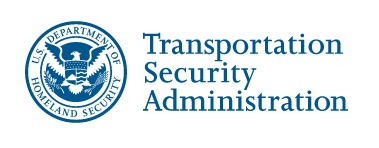

Traveling is meant to be a fun and enjoyable experience, but it comes with a set of risks, including safety and security hazards. Even an experienced traveler needs to be on the lookout for thieves, scams, and kidnappers while away from home.
Vacationers, people of different cultures from the locals, and business people are all at a disadvantage while traveling, but you can steer clear of any unwanted situations by knowing more about the ins and outs of travel security.
To keep you and your family out of harm’s way while traveling, you should know how to:
- Securely plan trips and vacations to ensure travel safety
- Stay safe and secure on the streets and defend yourself in the case of an attack
- Identify and secure yourself from scams and thieves
- Be in the know about travel-security and safety resources
- Enjoy yourself, while also remaining aware of your surroundings
Tips for Travel Security at Home and Abroad
To ensure safety while on vacation or during a business trip, it's important to understand a wide range of factors. Whether you're traveling for business or for pleasure, it's important to partake in security pre-planning to avoid any attackers, thieves, and scams.
- The Fundamentals of Traveling: The fundamentals of traveling include similar concepts to how you should behave in any situation that you're unfamiliar with, like walking home alone at night or while in a parking ramp. Be aware of your facial expressions and intuition, and watch your body language. Everything from the way you walk to your posture can affect how others approach you. You should always be aware of what is going on 50-100 feet around the perimeter of your body, and listen to your gut feeling. If you get the feeling that something could be wrong, you probably have good reason to feel that way.
- Emergency Planning: While traveling, you should expect the best but prepare for the worst. Before your trip, register with the US Embassy or Consulate and inform them of your travel plans. Make sure you have friends or family members who know your travel plans as well. Plan medical care options in case of a health emergency.
- Health Safety: Other people aren't your only concerns while traveling; you should also be aware of your health. Sunstroke, sunburn, and intestinal viruses are all important health concerns you should avoid to ensure safety. Before a trip, make sure your current shots are up-to-date, including Hepatitis A and B and Tetanus/diphtheria. Never leave your food or beverages unattended, which could give an attacker the opportunity to slip a sedative or other drug into your drink.
- Airport Security: Safety and security screening equipment like security camera systems and X-ray machines are all meant to keep travelers out of harm's way while away from home, so it's important for you to cooperate with airport security personnel for your own safety. Airports are the perfect place for criminals to victimize a traveler, so it's important that you keep full attention of your belongings while being screened.
- Staying Safe on the Streets: When you're traveling, it's important to blend in with the locals and not stand out as a traveler. You want to dress like the culture and blend in with everyone else as much as possible.
- Thieves, Pickpockets and Cons: One of the reasons to blend in with the locals is to avoid becoming a target of theft. Your cash, jewelry, passports, personal belongings, electronics, and credit cards are all items that make you a target of theft while traveling. Traveler's checks and hide-away belts are great solutions for protecting your belongings. In addition, you should always be aware of the surroundings and the people around you.
- Hotel Security: Many hotels use CCTV or security cameras to monitor guest behavior. However, you should use your own better judgement and never open your hotel door to anyone, unless you know for certain who is on the other side of the door. Criminals often pose as hotel staff to get into hotel rooms.
- Plan for Fire Emergencies: While a sky-high hotel room may sound amazing, it comes with safety concerns. Be aware of the fire escape route and avoid booking rooms any higher than the third floor in the case of an emergency evacuation, such as a fire.
- Rental Vehicles: One of the easiest ways that locals can find out you're a traveler is through your choice of transportation. Keep your rental car agreements hidden and don't store any personal belongings in the trunk of a rental cars. Don't pull over for anyone, even someone who seems to be in need of help. Always call for assistance.
- Risk Management: Knowing that terrorist activities are a problem should not hold you back from visiting the places you wish to see. To ensure safety and security while traveling, it's important to know your options before you travel, plan for emergencies, and make wise decisions. Do your research before leaving home and inform others of your travel plans.
Additional Resources About Travel Security
- Transportation Security Administration (TSA): The TSA provides effective transportation security to ensure safety and freedom of movement for people and commerce.
- Security Intelligence: Brought to you by IBM, Security Intelligence works to update information security professionals on the latest security-related news and analysis.
- Crime Doctor: Crime Doctor discusses the importance of having a travel security plan to ensure safety while away from home.
- U.S. Department of State: The U.S. Department of State explains how Americans can protect themselves through personal security at home, while traveling, and on the street.
- U.S. Travel Assistance Association (UStiA): The UStiA wants travelers to understand the ins and outs of security while traveling away from home.
- U.S. Passports & International Travel: The Passports & International Travel Division of the U.S. Department of State discusses steps that travelers can take to prepare their trip safely and effectively.
- One Bag: One Bag strives to inform travelers about the importance of traveling light for personal safety.
- Northeastern University: Northeastern University provides readers with international safety and security tips.
- UC Berkeley Information Security and Policy: UC Berkeley offers security tips for people traveling internationally.
- Tripwire, Inc.: Tripwire provides IT and data security tips for international travel.

